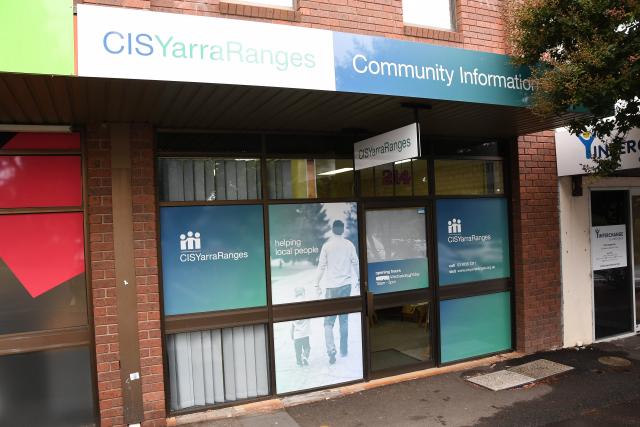At a time when community support services are needed the most, one of the Yarra Ranges’ key financial and information services is on the brink of closure due to a lack of funding.
The Community Information and Support Victoria (CISVic) Yarra Ranges branch, based in Lilydale, has had to cut back servicing hours and reduce staff to stay afloat.
But CISVic executive officer Kate Wheller said without immediate and ongoing increased funding, the branch would likely be unable to stay open past the end of the year, leaving a major gap in support for residents.
“We’re in a dire situation and without additional funding or cheaper accommodation, we will be forced to close the service by the end of the year,” she said.
Formerly known as Lilydale Assist which had been helping the community for more than 40 years, Ms Wheller said CISVic took over management of the service when it became apparent the dedicated volunteers could no longer effectively run it on their own.
“We took over the management of it four years ago and up to that time, it was solely run by an incredibly passionate and dedicated team of volunteers, many who had been there for decades,” she said.
“This wasn’t a sustainable model and it had been struggling for some time to maintain the volunteer workforce that it needed to continue operating. So we knew when we took over that there were going to be challenges because the service was effectively underfunded.
“It didn’t have capacity to employ any paid staff and the existence of volunteer only agencies in the current context is very difficult for sustainability.”
During the Covid-19 pandemic CIS Yarra Ranges was able to bring on a paid staff member to help with coordination of the service and training of volunteers because of an increase in funding.
Since then, however, funding has returned to a pre pandemic level, making it unsustainable for the service to provide what it had been able to during those years.
“What we found during Covid was that all levels of government really stepped up, they were able to put forward additional funding to support the community through the crisis of the pandemic.
“But the ripple effects of the pandemic are still being felt and we have more people in hardship than pre pandemic and we’ve gone back to pre pandemic funding. So we’re trying to support more people with less money.”
Even with limited opening hours at the Lilydale office, Ms Wheller said currently volunteers are supporting at least 10 and 12 individuals and families each day.
“We’re still seeing people who are in really significant personal and financial hardship that have key issues around limited income, housing costs, utility bills, medical and household expenses. So people are really struggling and with the cost of daily living, it’s just getting harder.”
While in this year’s round of Yarra Ranges Council’s partnership grants, a four year funding commitment program, CIS Yarra Ranges received an annual funding assurance of $30,000, Ms Wheller said it won’t be enough for the longevity of the service.
“We did apply through the grant process for more money than we received and the $30,000 that we have received is the exact same amount of funding that we’ve received for many, many years without any indexation in an environment where we’ve got rising costs.”
One of the main reasons this funding is not suitable is because CIS Yarra Ranges operates out of a commercial building space, where rent costs $20,000 annually.
For many of CISVic’s other agencies, they operate from council leased spaces where the rent is reduced to peppercorn rates or none at all.
“We are incredibly grateful to Yarra Ranges Council for their support and their enduring commitment to the service but it’s just not enough money.
“It’s not the right arrangement for us to be in a private commercial property and spending two thirds of the money on rent.”
Yarra Ranges Council did provide consultants to put together a report identifying funding options but Ms Wheller said early indications suggest there are little to no avenues that can be taken.
“If the service is to continue past the end of this year, we need, effectively, a significant increase in funding and an alternative venue to operate from.”
CISVic doesn’t only rely on funding from the council but also from the Federal government’s emergency relief funding and other streams but they also have kept up with demand.
Over the next eight months, Ms Wheller said she would remain in conversation with the council about finding an alternative space to rent, as well as advocating to the State government for coordination funding to provide the wages for a coordinator at each CISVic agency.







